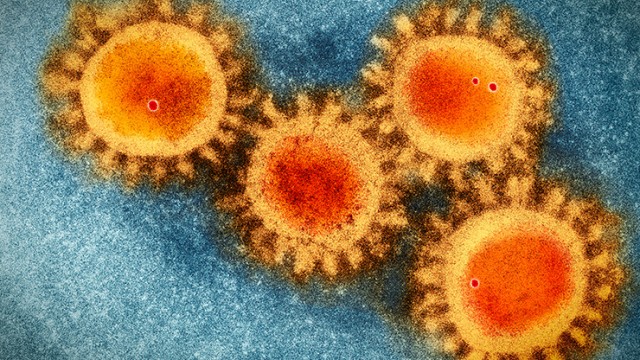April 9, 2020 I Jola Glotzer
NU and UIC launch COVID-19 drug trials
As part of a new international clinical drug trial, which currently involves 54 medical centers globally, two CBC universities — NU and UIC — begin to enroll COVID-19 patients to evaluate the clinical efficacy of the anti-viral drug remdesivir
The CBC applauds its two member universities — Northwestern and the University of Illinois at Chicago — who are part of a new international collaboration sponsored by the National Institute of Allergy and Infectious Diseases/Division of Microbiology and Infectious Diseases of the National Institutes of Health. The collaboration at the moment involves over 50 medical centers and hospitals in the US and abroad joined by one common goal to find the COVID-19 treatment. The ultimate plan is to include up to approximately 75 different locations globally, which will test varied antiviral drugs to evaluate their activity against the SARS-Cov-2 virus, which is responsible for the COVID-19 disease.
Both — NU and UIC — have recently begun enrolling COVID-19 patients to test the safety and efficacy of the anti-viral drug remdesivir, which was developed to combat another type of enveloped virus — the deadly Ebola. Remdesivir is an exciting candidate as it has been shown to have antiviral potency against coronaviruses such as MERS and SARS-Cov-2 in animal models.
The international studies, which are estimated to take a total of three years, will also test new potential anti-COVID-19 compounds as they become available.
The article below, reposted from Northwestern Now, addresses the current status of the remdesivir Phase 3 clinical trial being conducted at the NU Feinberg School of Medicine Hospital in downtown Chicago.
March 31, 2020 | Marla Paul | Northwestern Now
COVID-19 drug trial launches at Northwestern Medicine
Remdesivir was developed for Ebola and has antiviral activity for coronaviruses

Dr. Babafemi Taiwo is the principal investigator. Photo by Bruce Powell. Source: Northwestern Now.
Northwestern Medicine has enrolled its first participants in a new international clinical drug trial for COVID-19. The drug being tested is remdesivir, a novel anti-viral drug developed to treat Ebola and which has subsequently been found, in animal models, to have antiviral activity against coronaviruses including MERS and now SARS-Cov-2, the virus that causes COVID-19 disease.
The randomized, placebo-controlled, double-blind trial will evaluate the safety and efficacy of the drug in hospitalized adult patients diagnosed with COVID-19.
The first Chicago-area patient to enroll in the trial at Northwestern Medicine is an 89-year-old man in intensive care. “His family was very excited about it,” said principal investigator Dr. Babafemi Taiwo, chief of infectious diseases at Northwestern University Feinberg School of Medicine and Northwestern Medicine.
“I think it’s fantastic this trial is off the ground,” Taiwo said. “It puts something in our hands that we can investigate in a rigorous fashion in the quest for therapies that may be effective and widely adopted to treat the pandemic.“
Before the clinical trial, remdesivir was used to treat a handful of patients on a compassionate access program basis. “It’s too early to say if there is an effect because some of them are still receiving the treatment,” Taiwo said.
Participants in the trial receive either a placebo drug or remdesivir intravenously once a day for a maximum of 10 days. If a patient recovers sooner, the treatment is stopped. The patient will be evaluated for 30 days. About 50 sites around the country will enroll 440 patients in the trial.
While the study will last three years, the results may come in sooner.
“I think we’ll get our results soon because the enrollment pace is very quick,” Taiwo said. “I hope that in a matter of months, we’ll be able to tell whether this therapy is effective or not.”
In four studies of healthy people and participants in Ebola trials in Africa, the drug led to elevation of liver function test in some recipients, meaning the liver has to be carefully monitored. This effect was transient. Other participants had some abnormality in blood clotting tests and gastrointestinal side effects. None of these were serious.
The trial is sponsored by the National Institute of Allergy and Infectious Diseases/Division of Microbiology and Infectious Diseases of the National Institutes of Health.
SOURCE:
Adapted (with modifications) from Northwestern Now, by Marla Paul, published on March 31, 2020.
